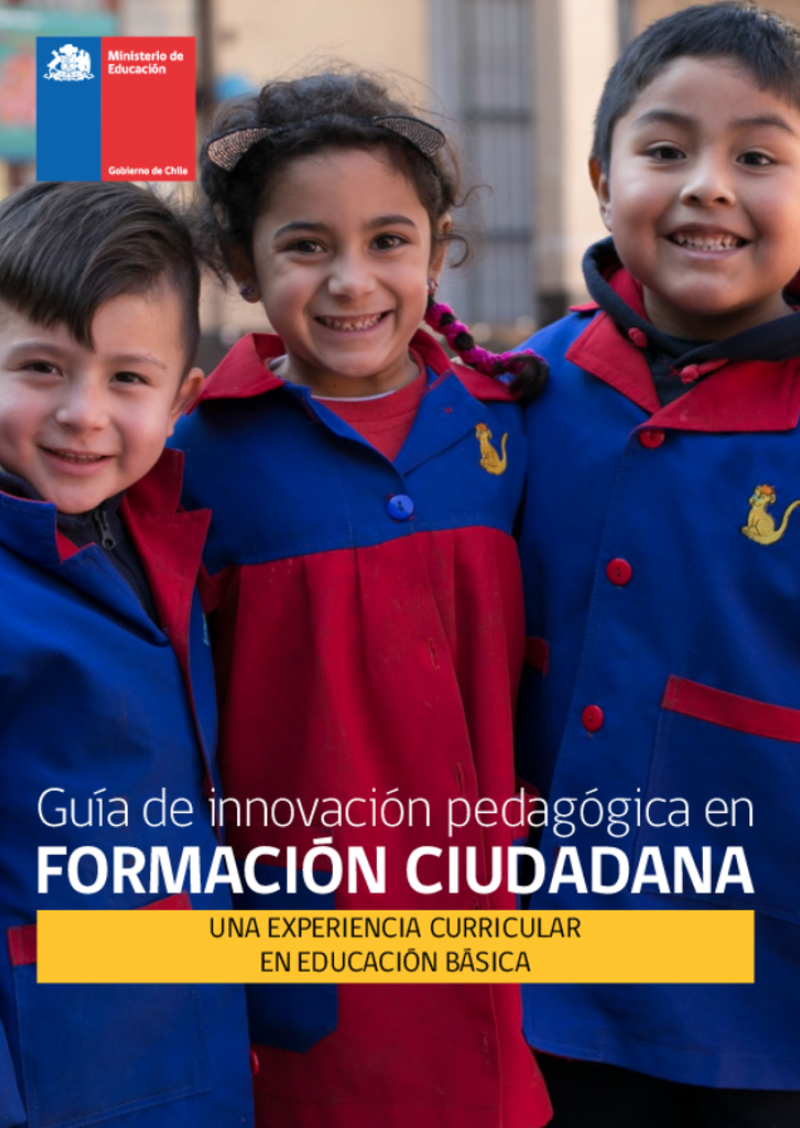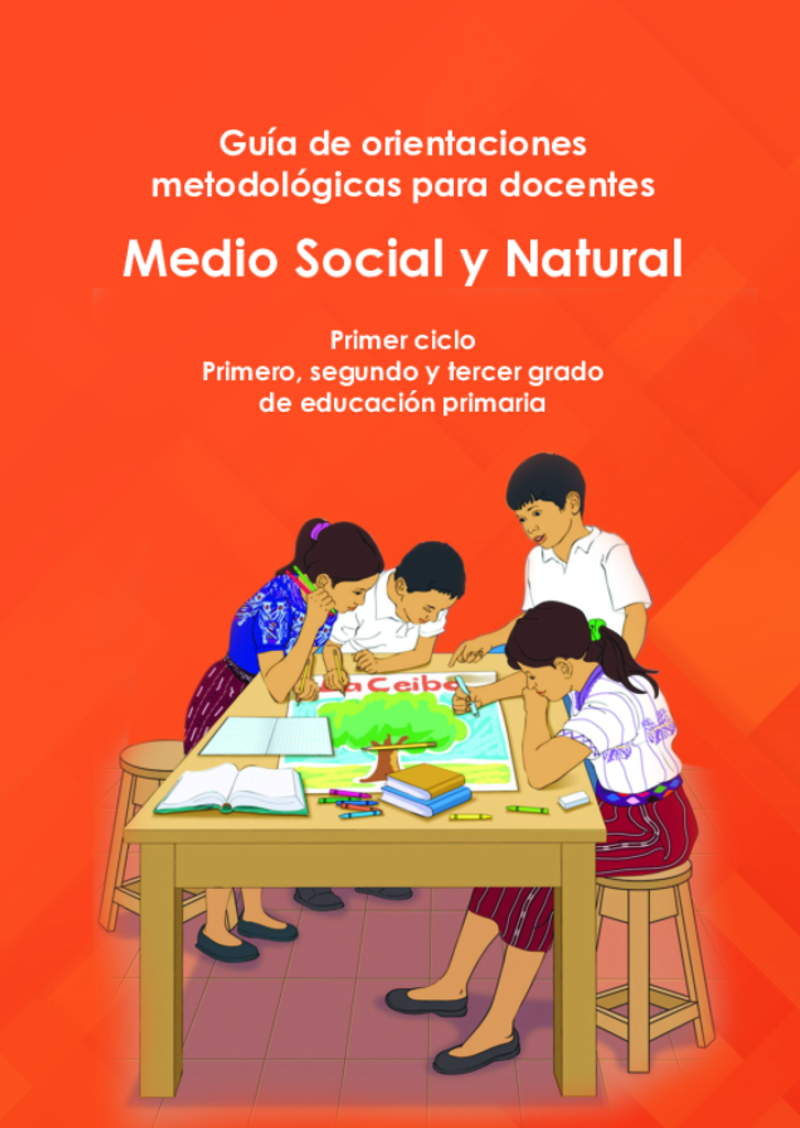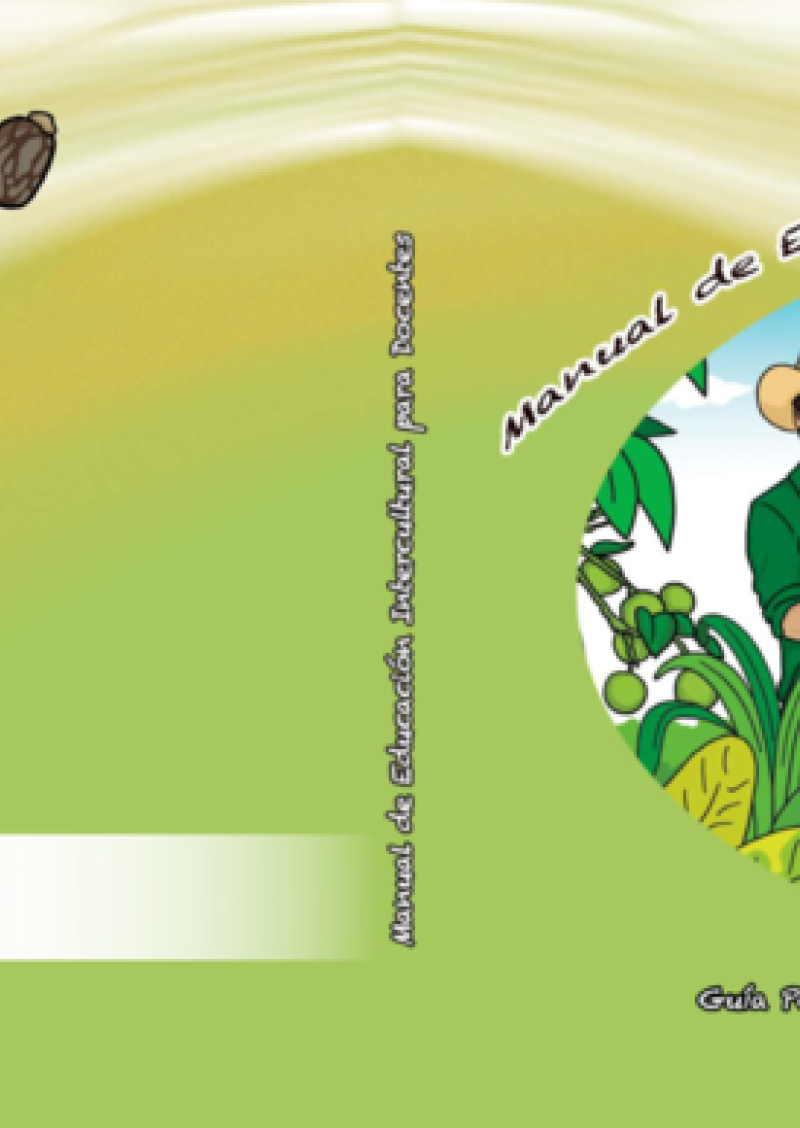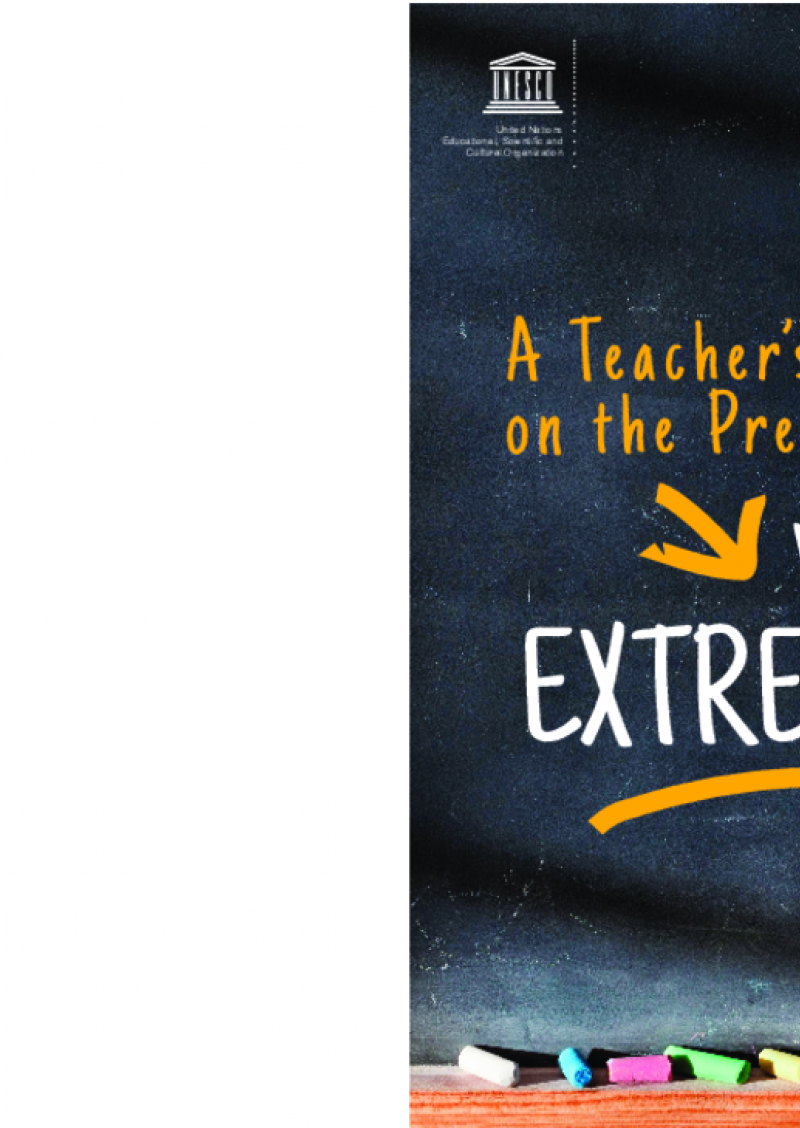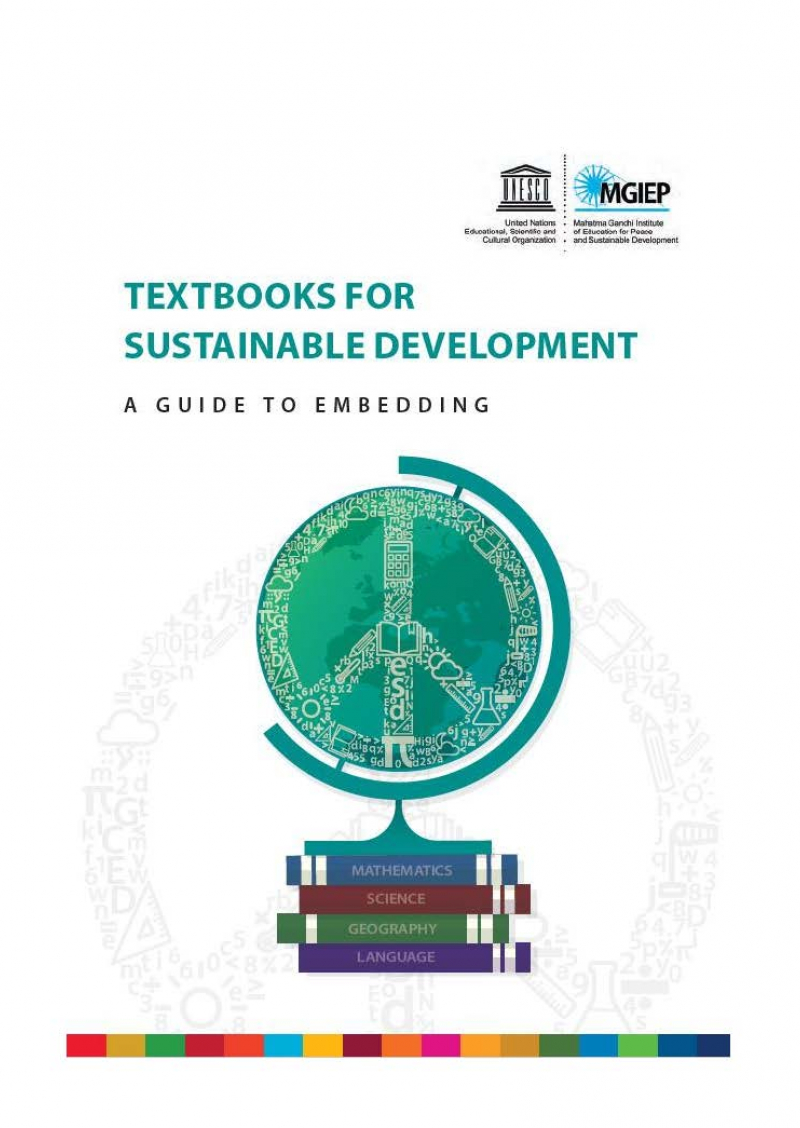Teacher Resource Centre
Displaying 1 - 12 of 12
Guía de innovación pedagógica en formación ciudadana
Esta guía ofrece a los docentes herramientas y estrategias para comprender y enseñar el concepto abstracto de ciudadanía en el aula. Proporciona recursos pedagógicos, actividades prácticas y ejemplos concretos para ayudar a los estudiantes a internalizar valores cívicos y democráticos. Además, incluye planes de lecciones y evaluaciones que facilitan para el docente la integración del tema en su práctica, promoviendo una educación integral y participativa. Con esta guía, los docentes pueden fomentar una comprensión profunda y crítica de la ciudadanía entre sus alumnos.
Ciencias de la computación para el aula - Manual para docentes (Primer ciclo primaria)
Este recurso incluye secuencias didácticas con actividades para realizar con los alumnos, así como fichas imprimibles con ejercicios. También contiene todas las instrucciones necesarias para que el docente pueda acompañar a los alumnos en la realización de estas actividades. El objetivo de estos recursos es enseñar a niñas y niños el funcionamiento de los computadores y las tecnologías digitales. Si este recurso ha sido concebido específicamente para el sistema educativo argentino, también se puede adaptar a otros contextos educativos hispanófonos. Se realizaron manuales similares para secundo ciclo de primaria, y ciclo secundario, que se podrán encontrar en este enlace.
Guía de orientaciones metodológicas para docentes - Medio Social y Natural
El departamento de educación intercultural del Minsiterio de Educación de Guatemala publicó este paquete de recursos para que docentes trabajen con alumnos de primaria en contextos comunitarios indígenas (culturas xinka, maya, garífuna y ladino), abordando los ámbitos sociales y naturales. Proporciona herramientas didácticas e instrucciones para un desempeño efectivo en clase, con ejemplos de actividades. Estas herramientas buscan facilitar la enseñanza respetando la diversidad cultural del país.
Manual de Educación Intercultural para Docentes
Este Manual a destinación de los docentes propone actividades y talleres con enfoque en la interculturalidad para realizar en el aula. Se divide en cuatro apartados: identidad colectiva e individual; el conocimiento de la historia y de las distintas manifestaciones culturales para fomentar la paz en el país; estereotipos y prejuicios para combatir las discriminaciones y el racismo; e interculturalidad para valorizar la diversidad y la convivencia.
Comment enseigner à des enfants handicapés dans les écoles ordinaires
Ce kit de ressource a été développé dans le cadre du programme Apprendre mis en œuvre par l’Agence française de développement et l’Agence Universitaire de la Francophonie. Ce document est conçu pour être utilisé dans des contextes éducatifs en Afrique de l’Ouest. Il fournit à l’enseignant des outils afin de comprendre les besoins des enfants en situation de handicap ainsi que des ressources pédagogiques sur lesquelles l’enseignant pourra s’appuyer pour répondre au mieux aux besoins de tous et toutes.
Kit pédagogique - Idées, ressources, méthodes et activités pour l'éducation interculturelle informelle avec des adultes et des jeunes
Il s’agit de la réédition mise à jour d’un manuel originellement publié en 1995 dans le cadre de la Campagne Européenne de la Jeunesse contre le Racisme, la Xénophobie, l’Antisémitisme et l’Intolérance. Le document est pensé comme un outil accessible aux praticiens de l’éducation informelle auprès d’un public d’âge varié. Il est divisé en 2 parties : la première offre le contexte et le cadre pour aborder les activités et méthodes proposées dans la seconde partie. On y retrouve également une liste de documents écrits et audiovisuels en différentes langues parlées au sein de l’Europe mobilisable dans des cadres éducatifs.
Transformative pedagogy for peace-building
This guide is designed to build the capacity of teachers so that they are informed and empowered in why and how to educate for peace-building. It offers an analysis of conflict, examines the role of ethics, expands on the elements of transformative pedagogy and provides practical tools to assess learners’ understanding of peacebuilding concepts and skills. It concludes with 20 engaging activities to support experiential learning.
The guide was developed as part of the "Teacher Training and Development for Peace-building in the Horn of Africa and Surrounding Countries project", which has as a long-term goal to develop a critical mass of teachers able to implement effective teaching and learning essential for preparing peace-loving and productive youth in Eritrea, Ethiopia, Kenya, Somalia, South Sudan and Uganda.
A teacher's guide on the prevention of violent extremism
This is UNESCO’s first teacher’s guide on the prevention of violent extremism through education. It was developed in order to ensure its relevance in different geographical and socio-cultural contexts. Therefore, it can be used as it is or further contextualized, adapted and translated in order to respond to the specific needs of learners.
The guide seeks to:
- provides practical advice on when and how to discuss the issue of
violent extremism and radicalization with learners;
- help teachers create a classroom climate that is inclusive and conducive
to respectful dialogue, open discussion and critical thinking.
Mobile mentoring for primary school teachers in crisis contexts
The following curriculum provides the content for a new mobile mentoring initiative developed to accompany the Teachers in Crisis Contexts Working Group ‘Training for primary school teachers in crisis contexts’ (https://trc-dev.gn.apc.org/professional-development-materials-and-opportunities/training-primary-school-teachers-crisis). The material is intended to provide additional layers of instructional and emotional support via mobile technology to inexperienced and under trained teachers in the most difficult of teaching contexts.
It has been designed to support both the Initial Training Pack and the Extended Training Pack and builds on the competency areas covered in both sets of trainings; ‘Teacher Role and Well Being’, ‘Child Protection, Well-being and Inclusion’, ‘Pedagogy’, ‘Curriculum and Planning’. The content provides teaching tips, motivational messages, reflection and discussion questions, plus images and video suggestions.
Training for primary school teachers in crisis contexts
The training pack responds to a critical gap in open source, competency based teacher training materials that provide coverage of foundational knowledge and skills required by teachers in crisis contexts, where teacher training is often limited to ad hoc workshops. The pack provides the basis for an in-service training program which can be used in its entirety to prepare unqualified teachers, but is also flexible enough for adaptation and use of selected modules or sessions according to the contextual needs of teachers. The pack provides foundational teacher training content on Teacher’s Role & Well-being; Child Protection, Well-being & Inclusion; Pedagogy; Curriculum & Planning; and Subject Knowledge.
Textbooks for sustainable development: a guide to embedding
This guidebook aims to support textbook authors and publishing houses to produce a new generation of textbooks that integrate education for sustainable development. By doing so, it aspires to make learning relevant and effective. It also contributes to the implementation of the 2030 Agenda for Sustainable Development. Textbook authors and educators are encouraged to use this guidebook as a source of ideas, tools and methods that can help to enrich content and pedagogy and complement their own individual and institutional strategies. The guidebook offers concrete guidance for textbook authors on how to reorient the existing curriculum content towards peace, sustainable development and global citizenship.
Teachers in crisis contexts peer coaching pack
In crisis contexts, where many teachers are untrained or undertrained, continued support is needed most; yet professional development in these settings is sporadic, of varied quality and often lacks any follow up support post-training. To address this lack of quality professional support for teachers in crisis contexts, the Teachers in Crisis Contexts Reference Group (TiCC) published the Training for Primary School Teachers in Crisis Contexts training pack in March 2016, a competency-based training designed specifically for teachers working in emergency settings.
Following the publication of the training pack, the TiCC began work on complementary Peer Coaching materials. Peer Coaching is continuous professional development (CPD) led by teachers for teachers. The continuous support teachers are able to provide to one another through Peer Coaching helps teachers make sustained positive changes in their teaching practice. Peer Coaching provides this support through two main activities: 1) Teacher Learning Circles (TLCs), and 2) Classroom Observations.
The main components include: The Facilitator’s Guide; Peer Coaching Toolkit, Level 1 - TLCs only; and Peer Coaching Toolkit, Level 2 - TLCs plus classroom observations.
